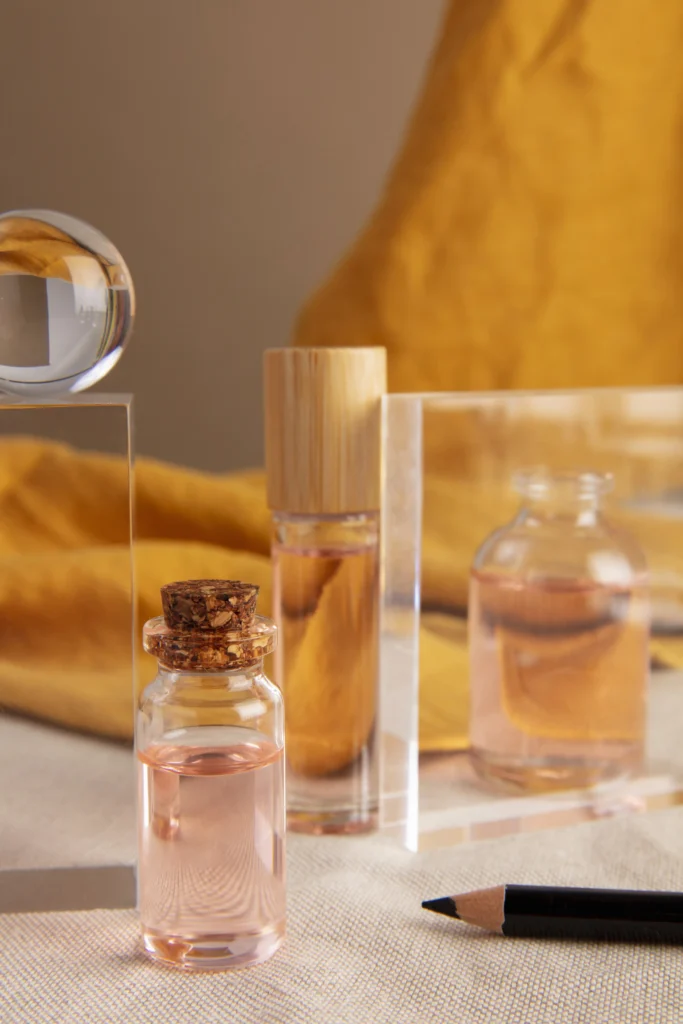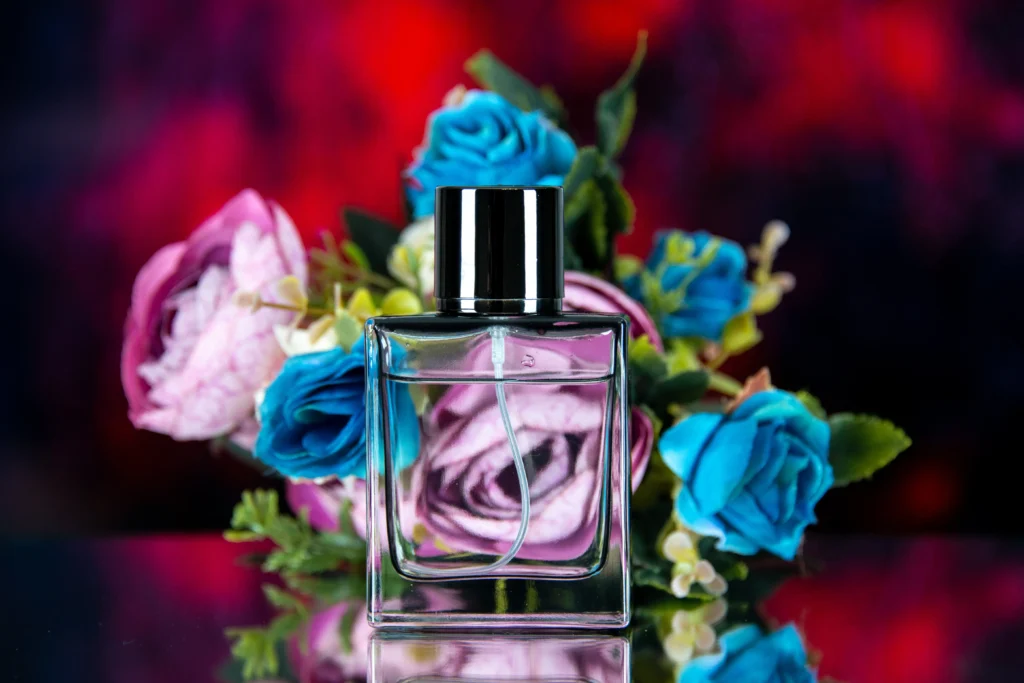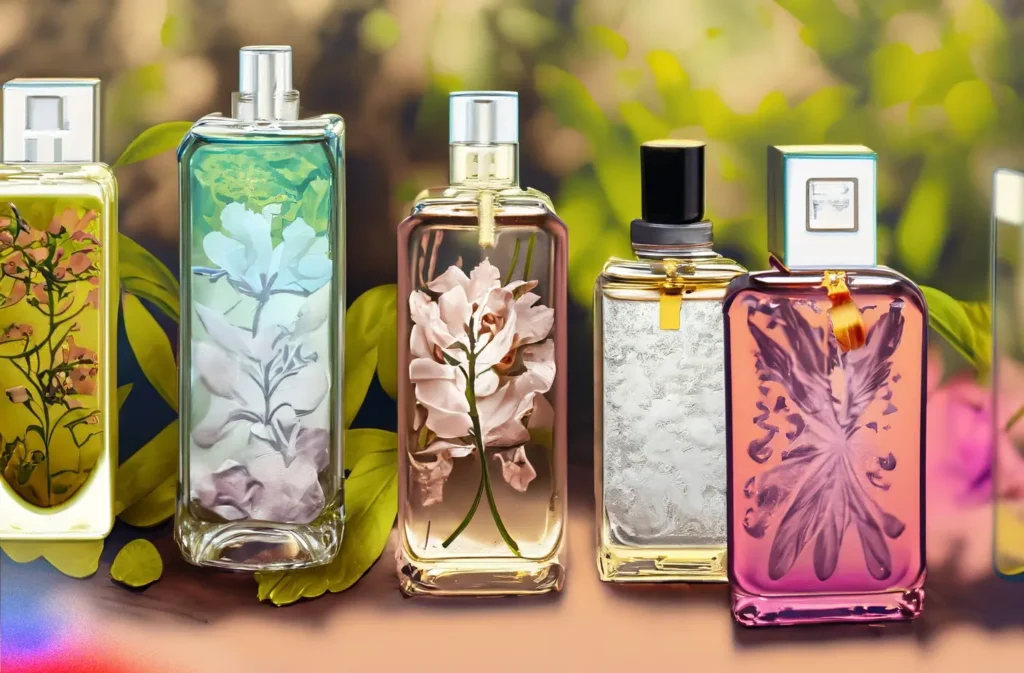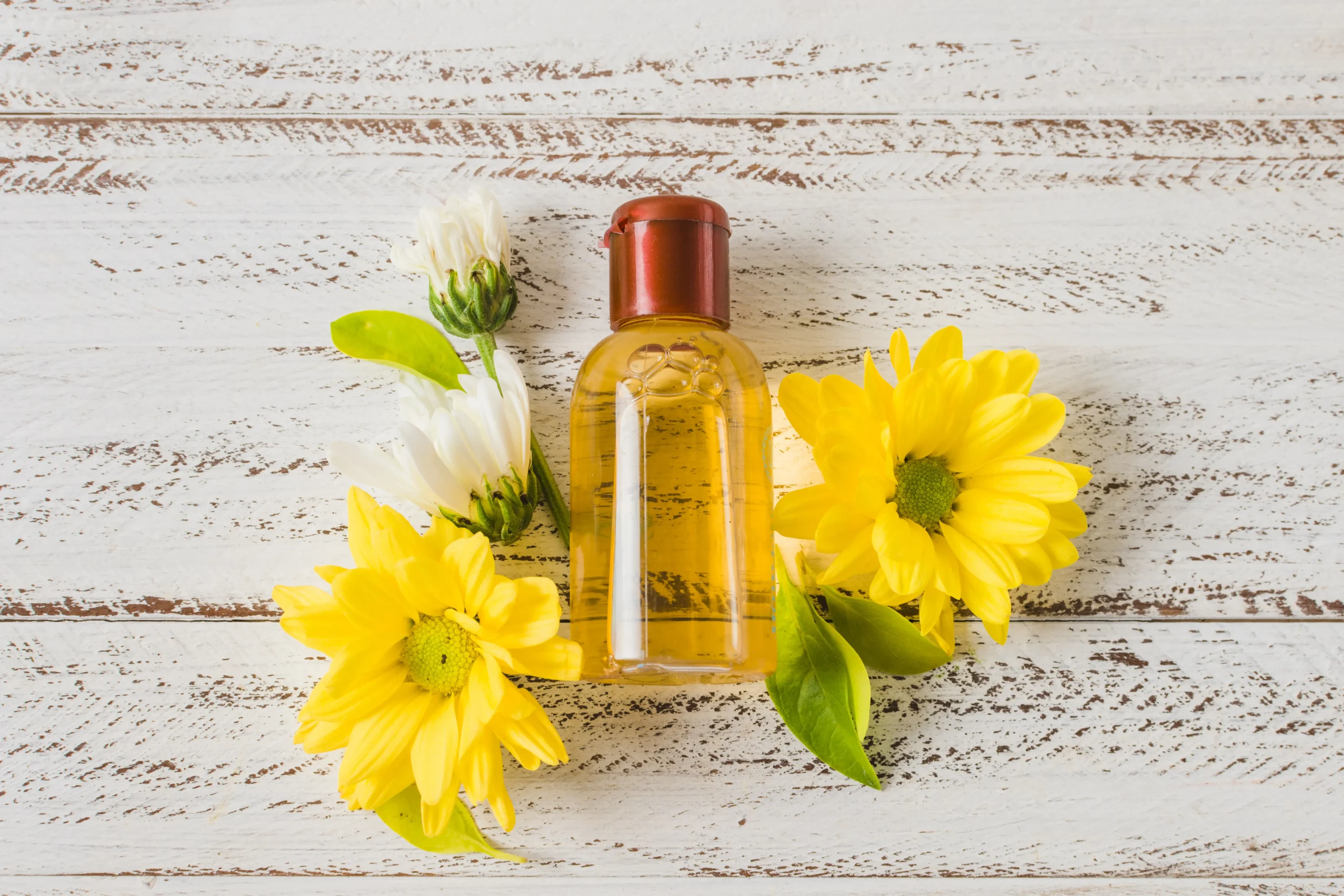Perfume is more than just an aroma; it’s the fusion of artistic ingenuity and scientific precision. Fusion of Natural elements and oils in “Artistry Way” to develop scent that resonates with your Soul. This Articles delves into the intricacies of perfume concentrations, exploring the spectrum from Eau de Parfum to Eau de Cologne and the very essence of Perfume itself. Along this path, we unravel the enigma of why some scents linger longer, the economics of luxury, and the art of selecting the quintessential fragrance for every occasion.
Table of Contents
The Meaning of Fragrance and Scent
The term “fragrance” generally refers to a pleasant, sweet scent, while “scent” can refer to any smell, pleasant or otherwise. Both terms are often used interchangeably with “perfume” and “cologne,” but as we’ll see, these terms have specific meanings in the world of fragrances. Understanding these terms is crucial for anyone who wants to explore the world of scents. Whether you’re a novice or a connoisseur, knowing the lingo is the first step in appreciating the complexity and beauty of fragrances.
The Meaning of Perfume Concentration
Perfume concentration refers to the percentage of aromatic compounds in a fragrance in other world “The Percentage of Blends of Fragrance Oils”. These concentrations can range from 15% to 40%, affecting the longevity and intensity of the scent. The higher the concentration, the longer-lasting and more potent the fragrance will be. Understanding this concept is crucial for anyone who wants to delve deeper into the world of fragrances. It’s not just about smelling good; it’s about how long that scent will last and how potent it will be throughout its duration.
Fragrance Oil Explained ; What Is Fragrance Oil ?
Fragrance oil is the essence that gives perfume its unique scent. It’s a concentrated liquid that contains a blend of various aromatic compounds. These oils are the building blocks of any fragrance, dictating its character and depth. Understanding the role of fragrance oils can help you appreciate the complexity and craftsmanship that go into creating a bottle of perfume. From floral notes to spicy undertones, it’s the fragrance oils that create these intricate scents which we will have in further Topics in Aroma Wave.

Why Full Concentration Isn’t Ideal
A 100% concentration of perfume would be overwhelmingly strong and could cause skin irritation due to its potency. It’s not just about achieving the strongest scent possible; it’s about balance and harmony in the composition. A well-crafted perfume takes into account not just the olfactory experience but also how it interacts with the skin. Too high a concentration can be counterproductive, causing discomfort, aversion and even allergic reactions.

The Different Types of Perfume Concentrations
Understanding the different types of perfume concentrations can significantly enhance your fragrance experience and help you make an informed choice. Whether you opt for the luxurious depth of Perfume or the light versatility of Eau de Fraiche, knowing the difference empowers you to find the scent that truly resonates with you.
The Meaning of Eau De Parfums, Eau de Toilette , Eau de Cologne
- Perfume: With more than 20% oil concentration, Perfume offers the highest fragrance concentration and lasts the longest, usually six to eight hours. It’s the go-to choice for those looking to make a lasting impression.
- Eau de Parfum (EDP): Contains 15% to 20% fragrance oils and lasts four to five hours on average. It’s a reliable choice for almost any occasion and offers a balanced scent profile.
- Eau de Toilette (EDT): Contains 5% to 15% fragrance oils and usually lasts two to three hours. It’s the everyday fragrance for many, light enough for work but versatile enough for a casual dinner.
- Eau de Cologne (EDC): Contains 2% to 4% fragrance oils and lasts up to two hours. It’s often used for a quick refresh, especially in hot weather or after physical activity.
- Eau de Fraiche: Contains 1% to 3% fragrance oils and also lasts up to two hours. It’s the lightest form of fragrance and is ideal for those who prefer a subtle scent.
Which is Better: EDP vs EDT vs EDC?
The choice between EDP, EDT, and EDC boils down to personal preference, occasion, and how long you want the scent to last. Each concentration offers a different olfactory experience, and what may be perfect for one occasion may not be suitable for another. It’s all about finding the right balance between longevity, potency, and situational appropriateness.
When to Choose Each Type of Perfume Concentration
Choosing the right type of perfume concentration can be likened to choosing the right outfit for an occasion—it’s all about context.
Perfume: Ideal for special, once-in-a-lifetime events like weddings or milestone anniversaries. It’s the black-tie outfit of fragrances.
Eau de Parfum: Perfect for formal events, romantic dates, or any situation where you want to make a lasting impression. Think of it as your go-to business suit or cocktail dress.
Eau de Toilette: The casual Friday or weekend brunch outfit of the fragrance world. It’s versatile, light, and perfect for everyday wear.
Eau de Cologne: Think of this as your gym clothes or loungewear—casual, comfortable, and not meant to last all day.
Eau de Fraiche: This is your beach or hot summer day outfit—light, airy, and refreshing.

Perfume Concentrations; Is There Different Perfume Concentration For Men and Women ?
Contrary to popular belief, perfume concentrations are not gender-specific. Both men and women can enjoy all types of perfume concentrations. The labeling of ‘for men’ and ‘for women’ is more a marketing strategy than a rule. In fact, many fragrances are unisex and can be worn by anyone regardless of gender. The key is to find a scent that you personally enjoy and feel confident wearing.
Perfume and Sensitive Skin
People with sensitive skin may do better with Perfumes or Eau de Fraiche as they contain less alcohol and are less likely to dry out the skin. If you have sensitive skin, it’s always a good idea to do a patch test first to ensure the fragrance won’t cause irritation. The higher the concentration of fragrance oils, the less alcohol is in the formula, making it less likely to cause skin issues.
Why are Perfume, Eau de Parfum More Expensive?
The higher concentration of fragrance oils justifies the higher price tag of Perfume compared to other concentrations, and the quality of oils and natural components involved the Perfume manifacturing. You’re not just paying for a brand name or fancy packaging; you’re paying for a higher percentage of the “Fragrance Oils” that make the fragrance unique and long-lasting.
So you can say Eau De Perfumes is higher price, more expensive then Eau De Toilette, and Eau De Toilette is more expensive that Eau De Cologne and so on..

Longevity of Different Concentrations
The longevity of a fragrance is directly related to its concentration. Here’s a quick breakdown:
Perfume: 6-8 hours
Eau de Parfum: 4-5 hours
Eau de Toilette: 2-3 hours
Eau de Cologne: Up to 2 hours
Eau de Fraiche: Up to 2 hours
Understanding the longevity of each type can help you plan your day better. If you know you have a long day ahead, you might opt for an Eau de Parfum or Perfume. For shorter periods, an Eau de Toilette or Eau de Cologne might be more appropriate.
Designer Perfumes: Same Name, Different Smell
Brands like Chanel, Dior, and Yves Saint Laurent often release the same fragrance in different concentrations. For example:
Chanel, Dior, Yves Saint Laurent—artisans of scent crafting symphonies. Actually, Many of the Designer perfume are found in the market with different concentration, to meet all customers needs. Then it goes further to adopt new range of concentration like , Eau Premiere, Eau de Parfum Intense and so and so,,
Yet, within these harmonious names, the same fragrance takes distinct forms with varying concentrations. A rose, by any name, sings a different song depending on its essence. Each one offers a journey, a narrative of olfactory dimensions shaped by concentration.
The Impact of Concentration on Scent
Different concentrations can slightly alter the perception of a fragrance’s primary scent notes. For example, an Eau de Toilette might emphasize top notes, while an Eau de Parfum might offer a richer olfactory experience focusing on the base notes. This is why the same fragrance can smell slightly different in its various forms.
Conclusion
Understanding perfume concentrations can significantly enhance your fragrance experience and help you make an informed choice. Whether you opt for the luxurious depth of Perfume or the light versatility of Eau de Fraiche, knowing the difference empowers you to find the scent that truly resonates with you.
